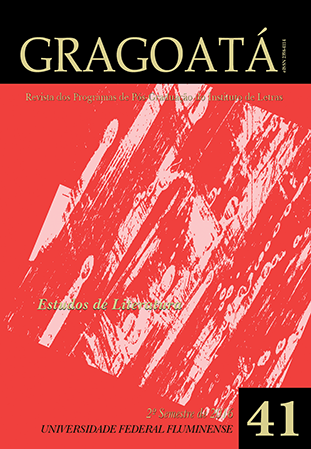<i>“E tu, que achas tu de tudo isto?”</i>: Colonial Women, Memory and Post-Independence in João Paulo Borges Coelho’s <i>Rainhas da Noite</i>
DOI:
https://doi.org/10.22409/gragoata.v21i41.33430Keywords:
Colonial Women, Mozambique, Colonialism, Post-Independence.Abstract
This essay analyzes João Paulo Borges Coelho’s latest novel, Rainhas da Noite (2013), from the perspective of its portrayal of colonial women. My argument begins by recalling Laura Calvacante Padilha’s inspired insights into the representation of voices from pre-colonial traditions in modern African fiction. I then develop and extend Padilha’s work by including voices from the historically more recent colonial past within the fictional repertory of recovered voices. Borges Coelho’s writings indeed allude to spaces and “voices” of African tradition, as Padilha argues. I suggest, however, that it is the memory of the past of Mozambican colonial time, as well as the relation between that past and a present defined by post-independence, that constitutes the axis of aesthetic and social meaning in Rainhas da Noite. The recent past of Portuguese colonial domination permeates Borges Coelho’s novels.
---
Original in English.
Downloads
Downloads
Published
How to Cite
Issue
Section
License
Authors who publish in Gragoatá agree to the following terms:
The authors retain the rights and give the journal the right to the first publication, simultaneously subject to a Creative Commons license CC-BY-NC 4.0, which allows sharing by third parties with due mention to the author and the first publication by Gragoatá.
Authors may enter into additional and separate contractual arrangements for the non-exclusive distribution of the published version of the work (for example, posting it in an institutional repository or publishing it in a book), with recognition of its initial publication in Gragoatá.

Gragoatá is licensed under a Creative Commons - Attribution-NonCommercial 4.0 International.











